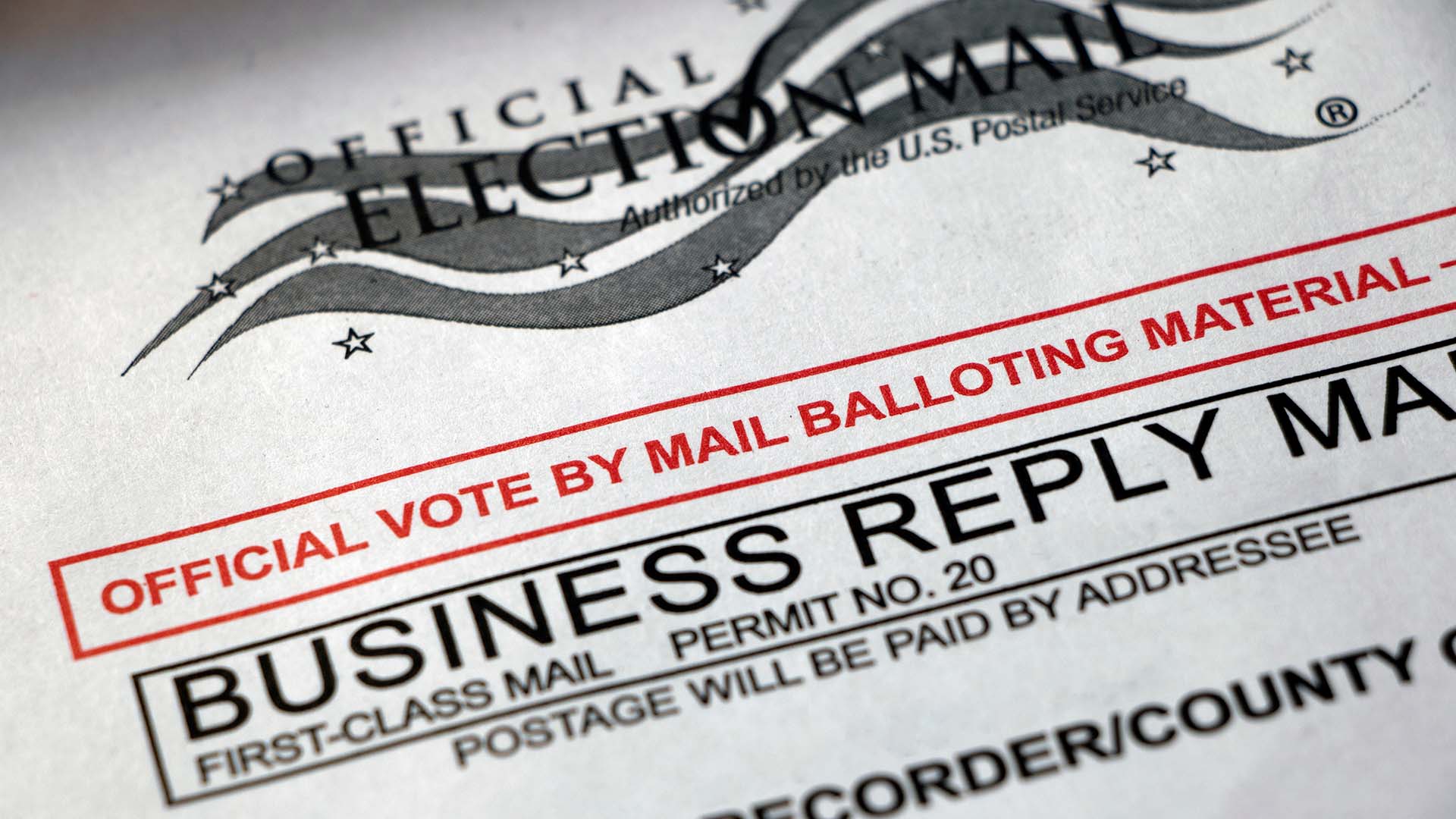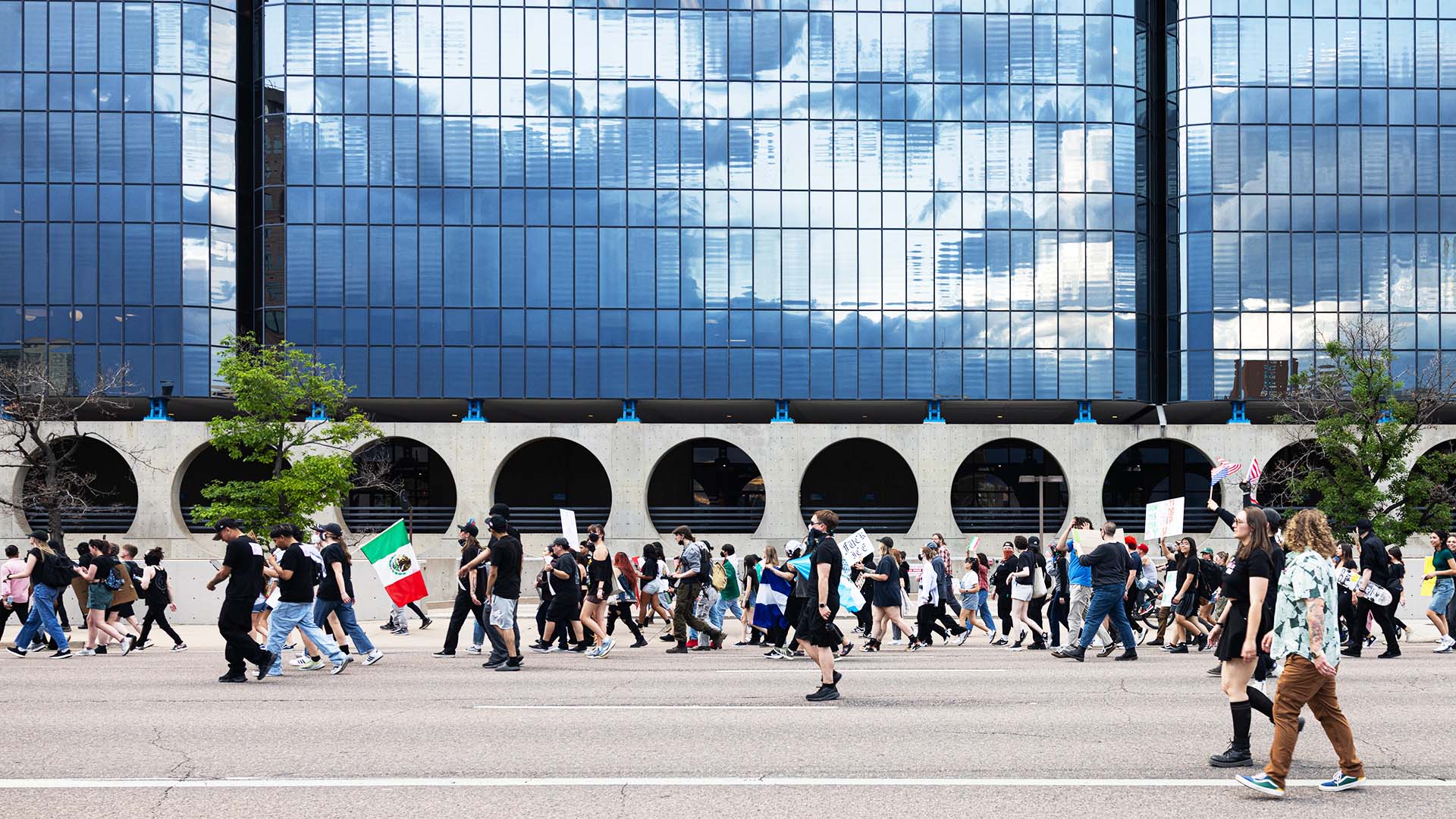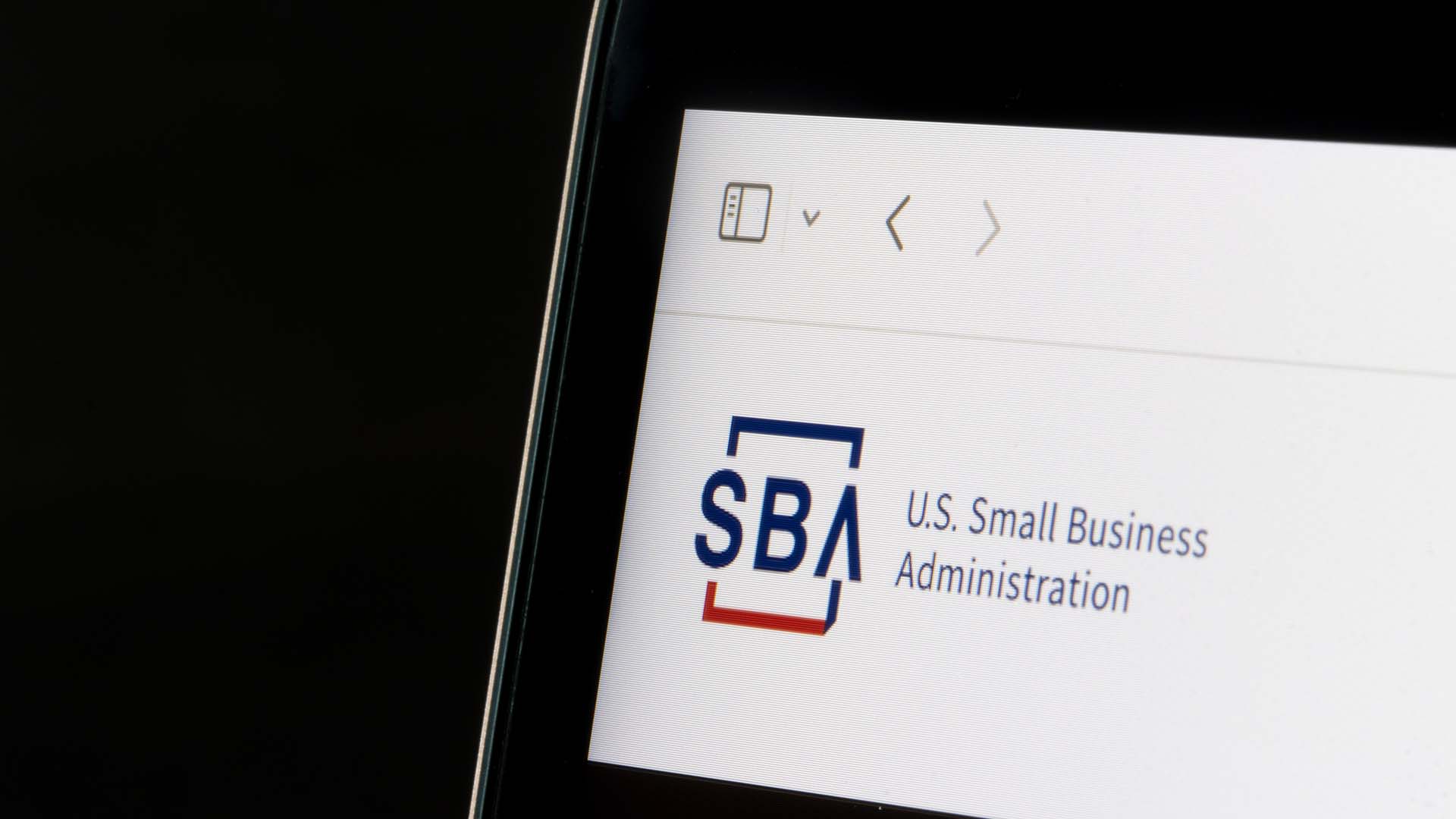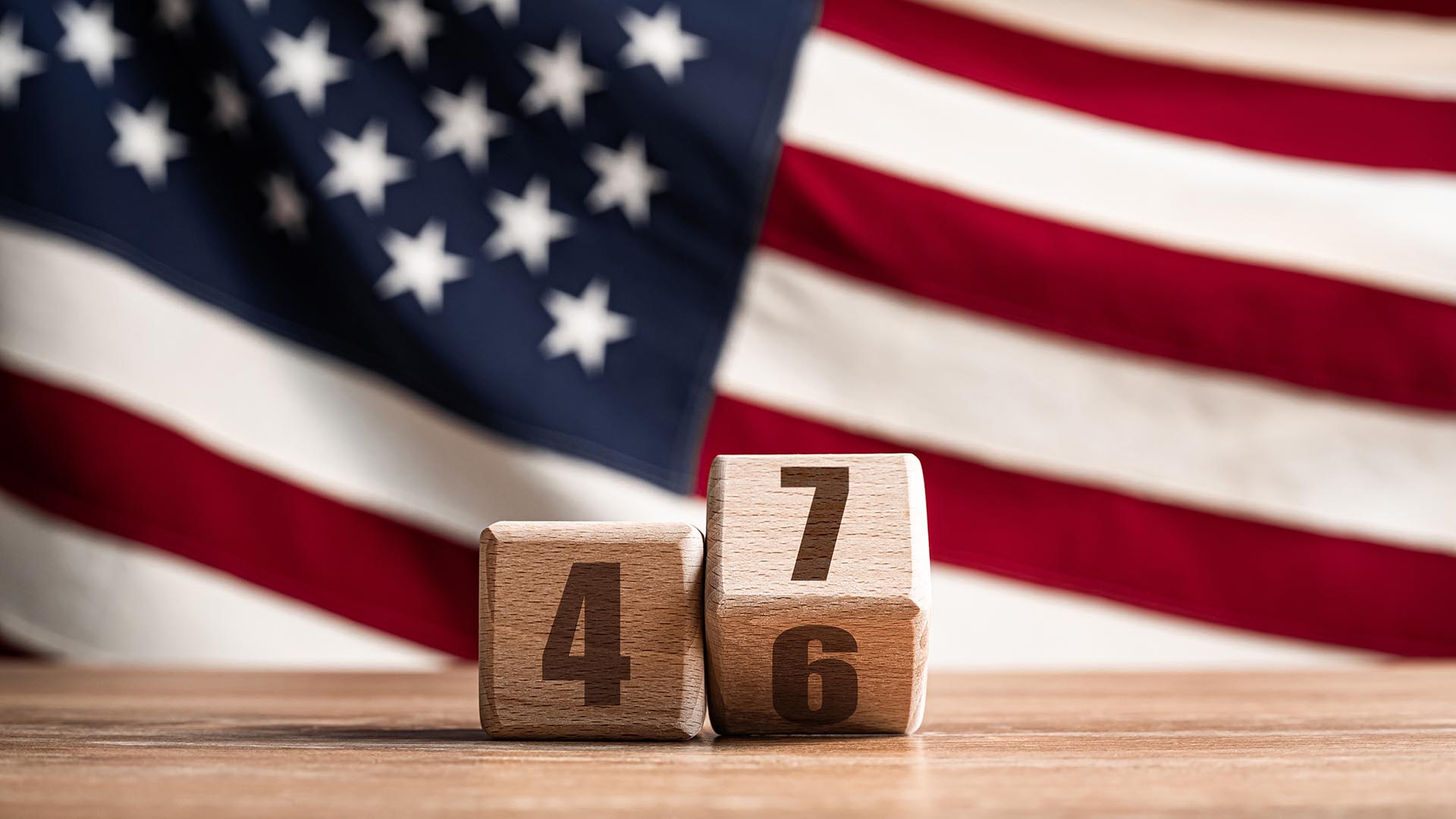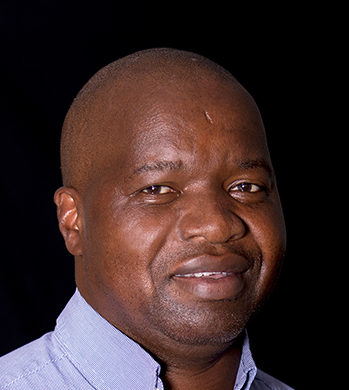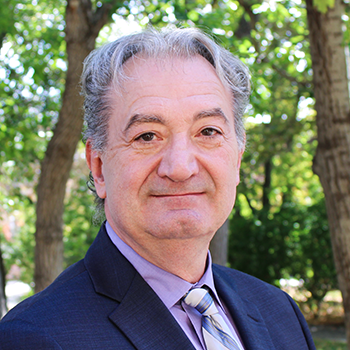Will the 2020 election see a historic youth vote?
Experts predict a strong turnout, especially in Colorado where a new law encourages first-time voters and officials focus efforts on college students.
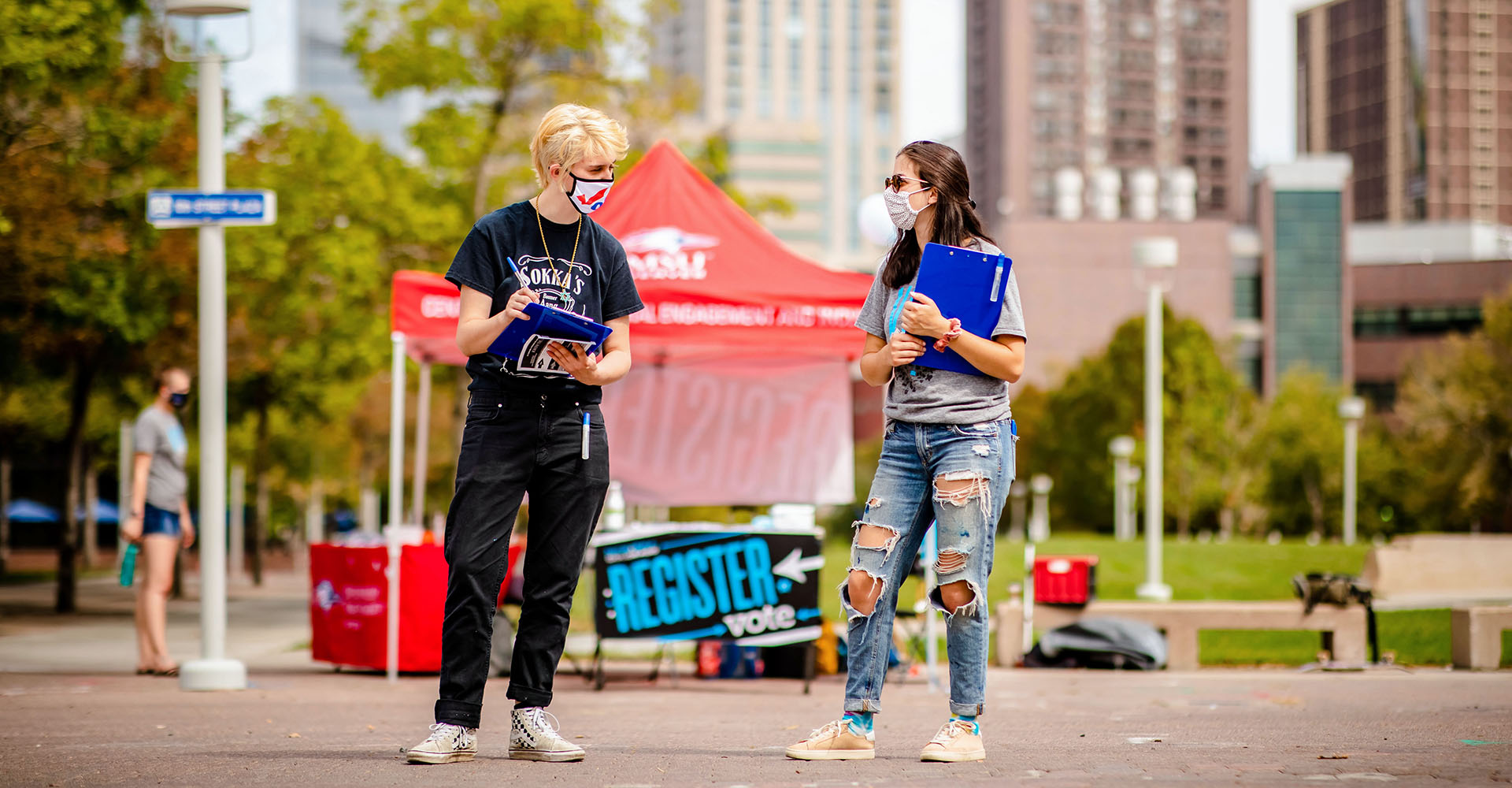
More than 10,600 17-year-old Coloradans cast a vote last March in the state’s presidential primary election, according to the Secretary of State’s Office.
This wasn’t a case of massive juvenile voter fraud but instead a first following the passage of the 2019 Colorado Votes Act, which grants 17-year-olds who will be 18 by the November election the ability to vote in a primary election. The law also guarantees Voter Service and Polling Centers or drop boxes on college campuses.
The new law is one factor leading many Colorado politicians, activists and academics to expect high election turnout in the 18-29 demographic.
Colorado is a national leader in voting by mail and ranked in the top five for voter participation in recent national elections, said Rob Preuhs, Ph.D., a political-science professor at Metropolitan State University of Denver. But there’s still room to grow the youth vote.
“(Voter turnout) has trickled down to the youth vote in Colorado,” he said. “It’s still just over half of the turnout levels of highest-turnout groups, which tend to be in that 45-to-65 range.”
Colorado had the nation’s second-highest turnout rate in the 2018 midterm election at 61.9%, according to a United States Elections Project analysis. Meanwhile, a study by Tufts University estimated that 41% of the state’s 18- to 29-year-olds voted in that midterm election.
The nearly unprecedented combination of high-profile issues affecting young people – including racial justice, the pandemic and the empty U.S. Supreme Court seat – will push them to the polls, Preuhs said. The stakes of the political battles on the ballot make it clear that voting is a choice with real implications.
“On balance, it’s all going to motivate people to go to the polls,” he said.
Challenging college students
Major election dates in ColoradoOct. 9: Counties begin mailing ballots. Oct. 20: MSU Denver Votes Early Day Oct. 26: Deadline to register to vote or update your registration and still receive a ballot in the mail. Oct. 26: Last suggested day to return a ballot through the mail. After this date, voters should visit a drop box or vote center to drop off their ballot. Nov. 3: Election Day. In Colorado, you can register to vote and vote in person until 7 p.m. on Election Day. Visit the Colorado Secretary of State election calendar for more details.
|
|
National, state and community leaders are focusing their efforts on college students to activate the youth vote.
Colorado Secretary of State Jena Griswold in September pressed the presidents of the state’s colleges and universities to join the All In Campus Democracy Challenge, a competition for the highest collegiate voter-registration and turnout rates.
“We cannot allow the COVID-19 health crisis to inhibit students from registering to vote or receiving their ballots,” she said in a news release.
MSU Denver in 2016 was recognized by the All In Democracy Challenge for having the highest undergraduate voting rate in the presidential election among more than 1,000 participating colleges and universities. Over the past four federal elections (2012-18), Roadrunners voted at a rate of 17 percentage points higher than the national average of participating institutions.
The University is in a unique position to drive student turnout, said journalism major Kelly Mutz, who volunteered as a University community-initiatives assistant this fall to help register voters. While many college students find themselves eligible to vote for the first time, the average age of an MSU Denver student is 25; Mutz, 29, has voted in two presidential elections.
“Especially at a school like MSU Denver, where we have such a unique combination of students – from first-generation students to veterans – all those voices are really important,” she said.
Peer-to-peer engagement
Even as the pandemic creates new barriers for registering college students, Colorado has a chance to set an example for the country in 2020 by producing the highest student turnout anywhere in America, U.S. Sen. Michael Bennet (D-Colo.) said in support of Griswold’s efforts.
“In these difficult times, all of us have a responsibility to help students exercise their right to vote and shape the future of our democracy,” he said in a news release.
Bennett in July proposed the National Emergency Student Vote Act, which would mandate that colleges and universities send voter-registration forms to all their students, including those taking all-online classes. While it’s good legislation, students such as Mutz are the most effective messengers for encouraging young people to vote, said Elizabeth Parmelee, Ph.D., MSU Denver’s associate vice president of Undergraduate Studies, who leads the University’s civic-engagement efforts.
Metz, for instance, reached out to MSU Denver’s student body through social media and developed resources for students to access voter information online.
“(Volunteering) felt like a really good opportunity to not only get myself involved but also to help other students make sure that their voices are heard and that their opinions matter,” she said.
Another good reason for focusing on this demographic is that voting increases civic engagement, Parmelee said. Research shows when a person votes, they also begin to participate in other aspects of their community.
“They don’t just vote,” she said. “They then raise issues at their local city council or school board.”
MSU Denver is optimistic it can increase student-voting rates even higher in 2020 – and maybe take home honors in Griswold’s challenge, Parmelee said. The University is encouraging students to vote by Oct. 20. And it held a voter-registration week Sept. 21-25 with digital and in-person events, including a Sept. 24 digital voter-engagement happy hour featuring Denver City Clerk and Recorder Paul Lopez. He challenged Coloradans to consider their vote one step toward building the city, state and country they want to live in.
“Voting is one piece of our democracy. It’s simple, easy to do,” he said. “But there’s a lot of work on the other end, too. You can vote to end racism, yes, but what are you doing the rest of the year?”

